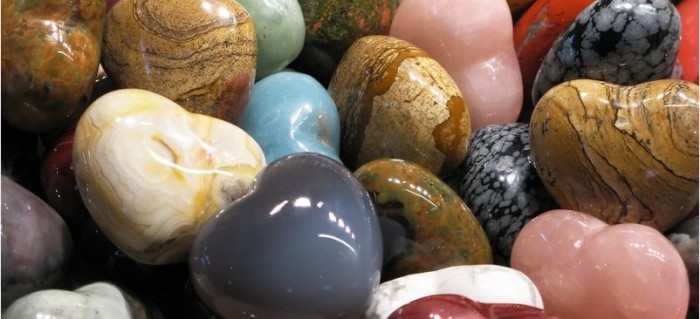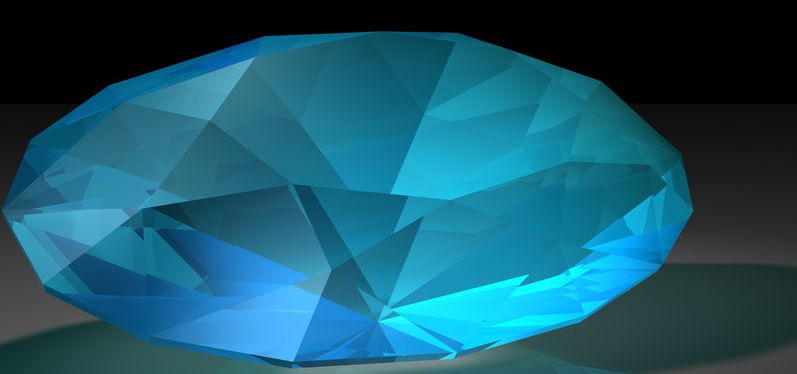Birthstones for December: Winter Blues of Turquoise, Tanzanite, and Zircon

December may be a very dreary month with winter’s arrival of snow, wind, and below freezing temperatures, but this month’s beautiful birthstones of Tanzanite, Turquoise, and Zircon can really brighten anyone’s day. The color blue for this month is very popular and especially turquoise because it is supposed that the gemstone represent the life cycle from birth until death (as we end one year and begin another) as the color changes due to natural elements such as copper (more blue), aluminum (more green), and zinc (yellow-green). Here’s all that you need to know about turquoise as well as the other birthstones for December: tanzanite and zircon.
The many faces of Turquoise
Like every gemstone, each separate one will be unique and as you already read, Turquoise actually comes in many different colors and three variations altogether: blue, green, and yellow-green. Not only will each gemstone be a slightly different shade of turquoise than another, but the gemstone also has different markings with different colors. The different colored veins are referred to as the matrix or the rather the name for the rock that helped to form the Turquoise. Even when the gemstone has been mined, some of the matrix remains embedded in the stone and can be black because of Iron Pyrite, yellow from Rhyolite, and brown due to Iron Oxide. Many superstitions are based on the color and appearance of Turquoise including:
- Marriage infidelity
- Change of the weather
- Cure an infected eye
- Attract poisons
- Change color according to the owner’s health
Turquoise was discovered during the thirteenth century in Turkey and therefore its name comes from the French saying, “pierre tourques” which means “Turkish” stone. A great stone for carving figurines or beadwork, there is plenty of it in the southwestern states of the United States and often used by the Native American tribes of that area and can be considered as sacred to many ancient civilizations as well as a symbol of the New World.
In fact, rulers of ancient Egypt including King Tut were buried with Turquoise gemstones and when Queen Zer’s tomb was excavated, four extravagant Turquoise bracelets where found with the remains. The Aztecs treasured Turquoise as well and would add the gemstone to masks, mosaics, and religious ornaments. Native American hunters wore turquoise amulets to protect them from danger and as a means of trading with each other. As you can see, turquoise has been an adored gemstone for many different cultures and it was eventually the national gemstone of Iran. The people used it on the thrones, daggers, horse trappings, sword hilts, bowls, cups, and other everyday items.
Ancient beliefs about Zircon
Zircon can be found in an array of many different beautiful colors including orange, yellow, brown, green, colorless, and the most popular color is red, but it can be a lovely blue shade as well for the month of December. Mined in Chanthaburi of Thailand, Palin of Cambodia, and Vietnam. The name for Zircon originates from the Arabic words for “zar” and “gun” that mean “gold” and “color.” There are different beliefs about Zircon including that it has the ability to grant rest, fulfill appetites, and protect travelers.
Many people find that Zircon resembles a Diamond (especially if it’s colorless) because of its luster and strong similarities between the two gemstones. However, long exposure to sunlight can affect the gemstone. Some Zircon gemstones tend to darken and lose their valuable luster with too much sunlight, but again, this affect is extremely rare and only happens to the gemstone occasionally. But to be on the safe side, keep your Zircon gemstones in a closed box or in a dresser where sunlight cannot reach it when you are not wearing it.
How rare are Tanzanites?
Tanzanite can only be mined in one area and that is in Arusha of Tanzania on the eastern coast of Africa. It was first mined in 1967 and because of its brilliant count and rarity from one place in the world, it’s considered the “gemstone of the 20th century.” Tanzanite tends to be a deep blue color that can even appear to be a shared of violet blue or deep purple. There is a Masai tribe legend that Tanzanite was once brown, but then a lightning bolt struck the stone and the extreme heat from it turned the color to a brilliant shade of blue. The legend coincides that when the brown gemstone, Zoisite, an opaque and brown gemstone is heated it turns into Tanzanite with a beautiful transparent blue color.
Looking for a present to brighten someone’s day this month? Consider purchasing one of these birthstones for December. Turquoise, Zircon, and Tanzanite are all beautiful in their natural form in shades of blue from light sky blue to deep violet as well, but each with a very unique background that make them extraordinary.
You may also like ...
- What To Know About The Birthstones For October: A Wide Variety Of Color
- What You Don’t Know About September Birthstones
- Infographic: Almost everything you need to know about birthstones
- What You Need To Know About November Birthstones: Topaz And Citrine
- Centuries Full of Meaning: Different Symbols from Different Cultures
- Ancient Cures and Tales about Amethyst Gemstones














